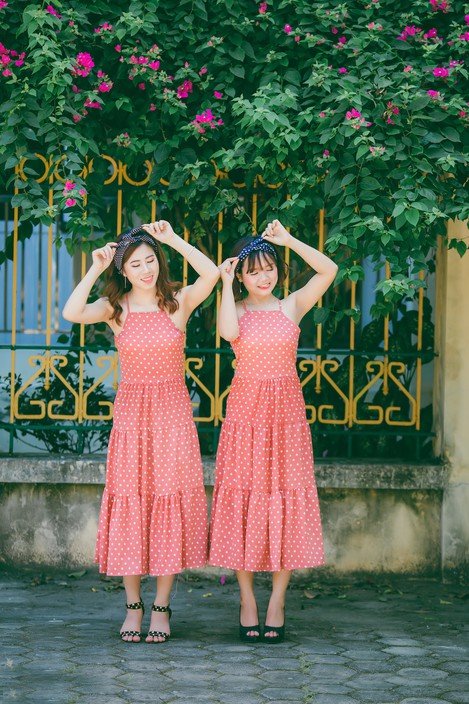Celebrating the Legacy of African Women Writers
Category : African Literature | Sub Category : African Women Writers Posted on 2023-07-07 21:24:53

Celebrating the Legacy of African Women Writers
Introduction:
African women writers have had a resurgence in their contributions to the literary landscape. Their narratives have been captivating readers across the globe. These talented women have paved the way for future generations and continue to shape the African literary scene, bringing unique voices, experiences, and stories to the forefront. We will explore the diverse and inspiring world of African women writers and celebrate their contributions to literature in this post.
1 The pioneers were honored.
African women writers have a long history of using their narratives to challenge societal norms. The mother of modern African literature is known as Flora Nwapa. Her novel "Efuru" opened the doors for other African women writers by telling the story of an Igwe woman on her own terms. Mariama B, Buchi Emecheta, and Bessie Head were pioneers who tackled issues of gender, class, and race.
2 A new generation is emerging.
A new generation of African women writers has emerged with a fresh perspective and renewed energy. She has gained international praise for her novels "Purple Hibiscus," "Half of a Yellow Sun," and "Americanah." Through her captivating stories, she addresses themes of feminism, identity, and cultural clashes. Other contemporary writers like Yvonne Adhiambo Owoor, Imbolo Mbue, and Ayobami Adebayo have explored diverse themes and experiences in their works.
3 Exploring themes and diversity.
African women writers have created stories that span a wide range of genres and themes, showcasing the breadth and depth of the African experience. Some writers use short stories to explore personal journeys and family dynamics. Other writers, such as Tsitsi Dangarembga, tackle political and social issues through powerful novels, such as "Nervous Conditions" and "This Mournable Body."
4 Literature is empowering.
African women writers have enriched the literary world and have also helped women by giving them more power. They challenge stereotypes, break free from patriarchal norms and inspire readers to embrace their own identities through their works. Nawal El Saadawi, a leading feminist writer from Egypt, has played a crucial role in addressing gender inequality and female genital cutting through her writing. Their courage in speaking out and sharing their experiences has sparked important conversations.
Conclusion
African women writers have left a mark on the world of literature. Their stories challenge societal norms and expose deep-rooted struggles. We appreciate their artistry but also contribute to a more inclusive literary landscape by increasing their voices. As readers, we should support the works of African women writers, as they continue to inspire, enlighten, and empower both African and global communities.
Leave a Comment:
SEARCH
Recent News
- Zurich, Switzerland is a vibrant city known for its rich cultural scene and diverse music offerings. One unique aspect of Zurich's music scene is the presence of Sudanese music, which has found a home in the city's melting pot of cultures.
- Zurich, Switzerland is a vibrant city known for its picturesque landscapes, rich history, and diverse cultural scene. One fascinating aspect of Zurich's cultural tapestry is the influence of Sudanese culture in the city.
- Zurich, Switzerland is known for its multicultural atmosphere and diverse culinary scene. One of the lesser-known gems of Zurich's food scene is Sudanese cuisine. Sudanese cuisine is a reflection of the country's diverse cultural influences, blending Arabic, African, and Mediterranean flavors to create a unique and delicious culinary experience.
- Zurich, Switzerland, is a vibrant city known for its scenic beauty, rich history, and thriving business environment. One interesting aspect of Zurich's business landscape is the presence of Sudanese entrepreneurs who have made their mark in various industries in the city.
- Visiting Zurich, Switzerland, can be an enriching experience for music lovers from all corners of the world. While the city may not be the first place that comes to mind when thinking about South African music, Zurich's diverse music scene offers a glimpse into the vibrant sounds of this African nation.
- Zurich, Switzerland: A Hub for Libyan Trade
- Zurich, Switzerland is a city known for its picturesque landscapes, high quality of life, and thriving economy. Recently, Zurich has also been making headlines in the energy sector with its growing interest and investment in Libyan energy resources.
- Zurich, Switzerland is a vibrant city known for its high quality of life, scenic beauty, and strong economy. This makes it an attractive destination for businesses from all over the world, including those from Libya.
READ MORE
3 months ago Category :

Zurich, Switzerland is a vibrant city known for its rich cultural scene and diverse music offerings. One unique aspect of Zurich's music scene is the presence of Sudanese music, which has found a home in the city's melting pot of cultures.
Read More →3 months ago Category :

Zurich, Switzerland is a vibrant city known for its picturesque landscapes, rich history, and diverse cultural scene. One fascinating aspect of Zurich's cultural tapestry is the influence of Sudanese culture in the city.
Read More →3 months ago Category :

Zurich, Switzerland is known for its multicultural atmosphere and diverse culinary scene. One of the lesser-known gems of Zurich's food scene is Sudanese cuisine. Sudanese cuisine is a reflection of the country's diverse cultural influences, blending Arabic, African, and Mediterranean flavors to create a unique and delicious culinary experience.
Read More →3 months ago Category :
